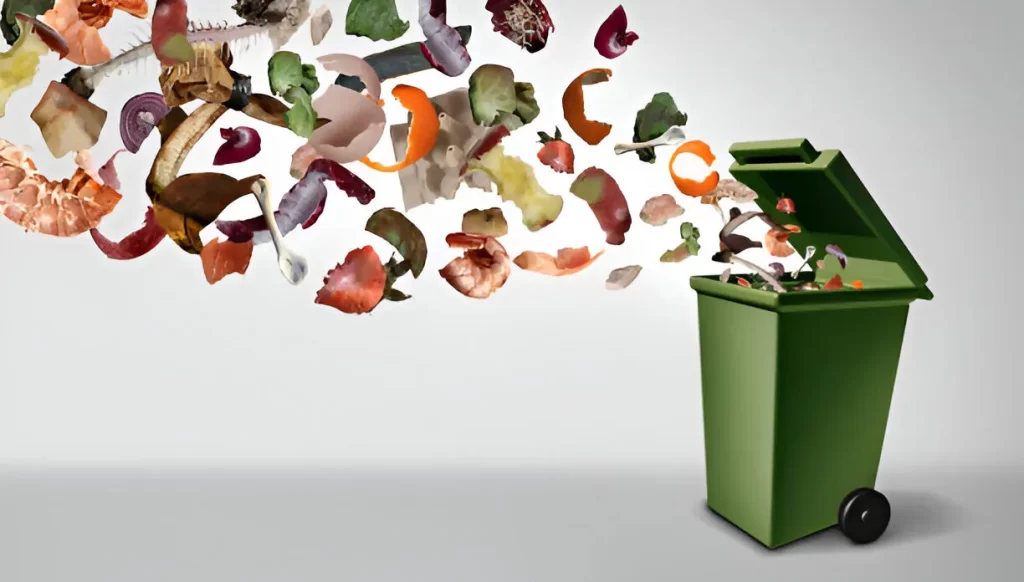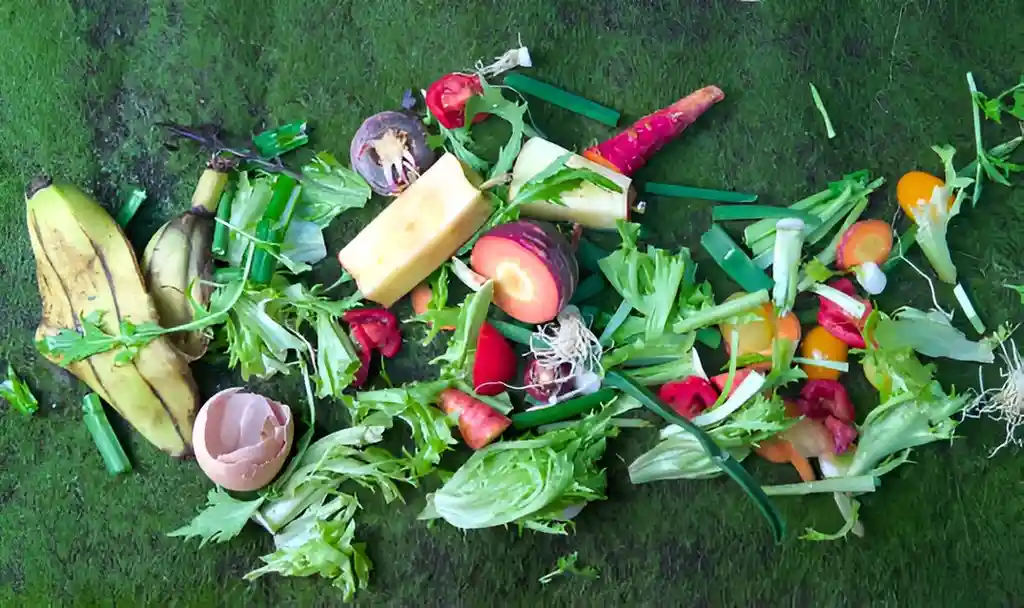Table of Contents
Food waste has become one of the most pressing environmental challenges today. Each year, millions of tons of food are wasted across the globe, creating an unnecessary burden on the planet.
Not only does this contribute to landfills and greenhouse gas emissions, but it also wastes valuable resources like water, energy, and labor.
However, there is hope—managing food waste for a greener future is not only possible but also essential for sustainability.
In this article, we’ll explore effective ways to manage food waste for a greener future, including innovative technologies, conscious consumption habits, and sustainable food disposal methods.
Let’s take a deeper dive into this crucial issue and discover how we can reduce food waste together.
Understanding the Impact of Food Waste on Our Planet
Before diving into how to reduce food waste, it’s essential to understand its profound impact on the environment. Wasting food doesn’t just mean tossing out leftovers—it means discarding all the resources that went into producing, transporting, and storing that food.
Environmental Consequences of Food Waste

Food waste is responsible for a significant portion of global greenhouse gas emissions. When food decomposes in landfills, it produces methane, a potent greenhouse gas that contributes to climate change.
In fact, food waste is one of the largest contributors to global warming, making it crucial for us to manage food waste for a greener future.
Moreover, producing food requires vast amounts of water, energy, and land. Wasting food is, in essence, wasting these precious resources.
For example, producing just one pound of beef requires around 1,800 gallons of water. Wasting that beef means wasting all the water that went into its production.
Economic and Social Costs of Food Waste
The economic impact of food waste is staggering, with the Food and Agriculture Organization (FAO) estimating that around $1 trillion worth of food is wasted globally each year.
This represents a colossal loss, especially when considering the potential to redirect some of that food to those who need it most.
Managing food waste for a greener future doesn’t just make sense for the planet; it’s an essential part of addressing food insecurity and hunger worldwide.
Innovative Technologies to Manage Food Waste for a Greener Future
As the world moves toward more sustainable solutions, technology plays a vital role in reducing food waste. Thanks to cutting-edge innovations, we now have powerful tools to help manage food waste more efficiently.
Here are some of the most promising technologies currently helping to manage food waste for a greener future.
Smart Fridges and Freezers: A Game-Changer in Food Preservation
One of the most significant advancements in food storage is the development of smart fridges and freezers.
These devices can track the freshness and expiration dates of food items, sending users alerts when food is nearing spoilage.
By providing real-time inventory management, smart fridges help individuals and families manage food waste for a greener future by ensuring that food is consumed before it goes bad.
Some models even allow users to scan food labels and get recipe suggestions based on what they have in their fridge, further reducing the likelihood of waste.
These devices take the guesswork out of food storage, making it easier to plan meals and avoid over-purchasing.
Food Waste Apps: Bridging the Gap Between Consumers and Surplus Food
Food waste apps are another fantastic tool in the fight against food waste. These apps connect consumers with restaurants, grocery stores, and food producers who have surplus or near-expiry food.
Apps like Too Good To Go allow users to purchase discounted meals and groceries, preventing perfectly good food from ending up in landfills.
Additionally, apps like OLIO enable people to share excess food with others in their local community, fostering a sense of collaboration and reducing food waste.
By utilizing food waste apps, individuals can play a role in managing food waste for a greener future while benefiting from cost-effective and sustainable food options.
AI-Powered Food Distribution Systems
Artificial intelligence (AI) is transforming the food distribution sector by optimizing supply chains and reducing waste. AI-powered systems can predict demand, track inventory, and ensure that food is distributed efficiently.
This helps businesses avoid overproduction, leading to less unsold food that might go to waste.
For example, AI systems in supermarkets can adjust stock levels based on consumer behavior and market trends, reducing food spoilage.
In food banks, AI can help prioritize food donations based on shelf life, ensuring that perishable items are distributed quickly to those in need.
By using AI-driven solutions, companies can manage food waste for a greener future while minimizing their environmental footprint.
Read also: Traceloans.com Business Loans
Packaging Innovations: Keeping Food Fresher for Longer
Packaging plays a crucial role in preserving food and preventing waste. Innovative packaging technologies, such as vacuum-sealed bags and edible packaging, are now being used to extend the shelf life of perishable goods.
These innovations not only reduce food waste but also provide more sustainable alternatives to traditional packaging.
For example, vacuum-sealed packaging helps prevent oxygen from spoiling food, keeping it fresher for longer.
Meanwhile, edible packaging made from natural ingredients like seaweed can reduce plastic waste while also being fully compostable.
These packaging innovations are essential in the fight to manage food waste for a greener future.
Sustainable Food Waste Disposal Methods
Reducing food waste is not just about preventing it; it’s also about ensuring that food scraps are disposed of in a sustainable manner.
Sustainable disposal methods like composting and vermiculture are becoming increasingly popular as ways to repurpose food waste and contribute to a greener planet.
Composting at Home: Turning Scraps into Rich Soil
Composting is one of the easiest and most effective ways to dispose of food waste sustainably. By composting food scraps at home, you can create nutrient-rich soil for your garden while reducing the amount of organic waste that ends up in landfills.
In fact, food scraps make up a significant portion of landfill waste, and composting helps divert these materials from polluting the environment.
Composting is simple and can be done in small spaces, even apartments. For those with limited space, countertop composting systems are available, which make it easy to compost food waste without a backyard.
By composting food scraps, you’re playing an active role in managing food waste for a greener future.
Vermiculture: Using Worms for Waste Reduction
Another innovative method of food waste disposal is vermiculture, or worm composting. This process involves using worms to break down food scraps into nutrient-rich castings that can be used as natural fertilizer.
Vermiculture is a great option for those who have limited space or want a more efficient composting method.
Worm composting is quick, odorless, and produces high-quality compost that can be used to enhance garden soil.
By using worms to recycle food waste, you contribute to a more sustainable food system and help manage food waste for a greener future.
The Role of Individuals in Reducing Food Waste
While technology and businesses are key players in reducing food waste, individuals also have a significant role to play. By adopting mindful shopping habits, reducing food waste at home, and educating others, we can all make a difference.
Mindful Shopping and Meal Planning
One of the most effective ways to manage food waste for a greener future is through mindful shopping and meal planning.
Planning meals in advance and creating a shopping list can help reduce impulse purchases, ensuring that only the necessary items are bought. This reduces the likelihood of over-purchasing and allows you to use what you have before it spoils.
Storing Food Properly to Extend Freshness
Proper food storage is crucial for reducing food waste. By storing food in airtight containers, keeping perishable items in the fridge, and ensuring that your kitchen is organized, you can extend the shelf life of many foods.
Simple practices like these can have a significant impact on reducing food waste and managing food waste for a greener future.
Repurposing Leftovers and Scraps
Another effective strategy is to repurpose leftovers and food scraps. Instead of throwing away excess food, use it to create new meals.
Leftover vegetables can be made into soups, fruit scraps can be turned into smoothies, and bread can be used to make croutons or breadcrumbs. Repurposing leftovers not only reduces waste but also saves you money.
Final Words
Managing food waste for a greener future is a goal we must all work toward.
From individuals making conscious choices about their consumption to businesses adopting innovative technologies and government policies supporting sustainable practices, everyone has a role to play in reducing food waste.
By utilizing advanced technologies, adopting sustainable disposal methods, and committing to mindful consumption, we can drastically reduce food waste and its environmental impact.
The path to a greener future starts with small actions, but together, these actions can make a significant difference.
People also ask
What are the environmental impacts of food waste?
Food waste contributes to greenhouse gas emissions, water and energy waste, and land degradation. Decomposing food in landfills produces methane, which significantly accelerates climate change.
How can I reduce food waste at home?
Plan meals, store food properly, repurpose leftovers, and compost food scraps to reduce waste at home. These habits help manage food waste and contribute to sustainability.
What are some innovative technologies for food waste management?
Technologies like smart fridges, food waste apps, AI-powered distribution systems, and sustainable packaging innovations are helping reduce food waste and extend food shelf life.
How do businesses help manage food waste?
Businesses like supermarkets and restaurants are implementing food waste reduction programs, donating surplus food, and adopting technology solutions to improve inventory management and minimize waste.
How can I get involved in managing food waste for a greener future?
You can reduce food waste by practicing mindful shopping, repurposing leftovers, composting at home, and supporting businesses and initiatives focused on sustainability.

